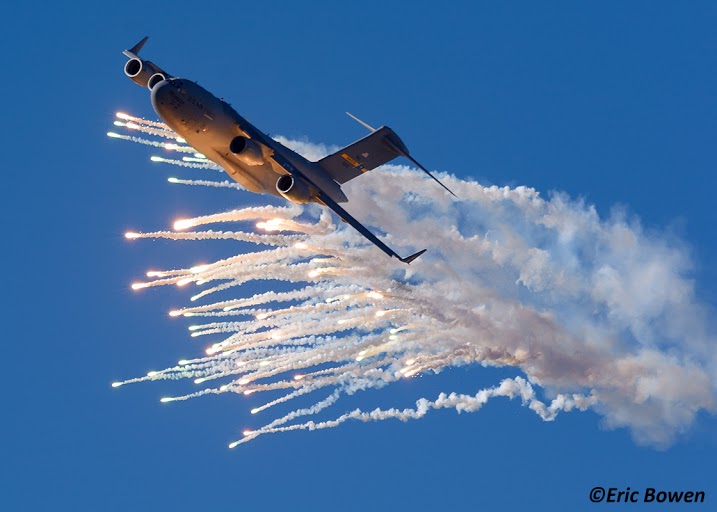Awesome images of A-10s, C-17s and C-130s involved in JFEX exercise.
The battle went unnoticed by most.
On Saturday, Jun. 18 a joint aerial friendly force faced a very capable and determined adversary. The adversary fielded a world class air force combined with advanced radar and surface to air missile sites that create an Anti-Access/Area-Denial zone (A2/AD).
Within that zone, lay the target – a critical airfield. Operational plans called for a combined force of 39 C-17As and C-130H&Js to land equipment and drop paratroops from the US Army’s 82nd Airborne Division onto the airfield and secure it.

This is the Joint Forcible Entry Exercise, or JFEX.
JFEX takes place twice a year as one of the final assignments for those participating in the U.S. Air Force Weapons School (USAFWS). The Weapons School represents the highest level of training offered by the USAF. Those selected to participate are typically instructors on their platforms (aircraft/systems), and have demonstrated leadership excellence. Weapons School graduates are among the finest leaders and advanced integration warfighters on the planet.
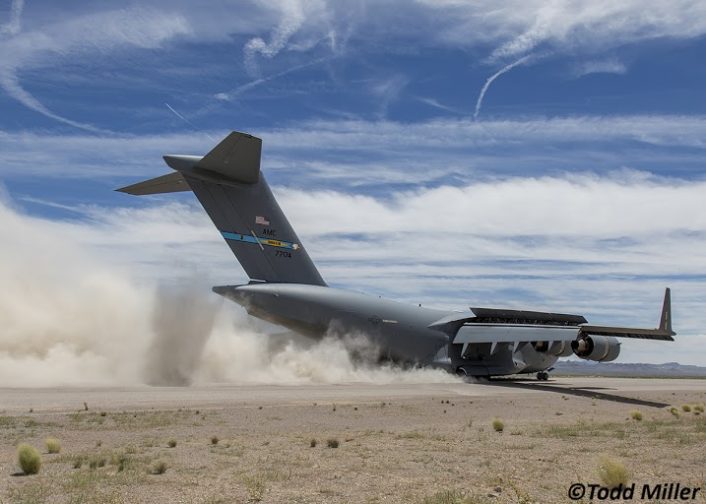
The Nevada Test and Training Range (NTTR) provides the ideal venue for the exercise. The restricted NTTR features advanced radar systems, surface to air missile sites (SAM), scores of ground targets as well as the unimproved Keno airfield. These systems are configured to create the most challenging and realistic A2/AD threat.
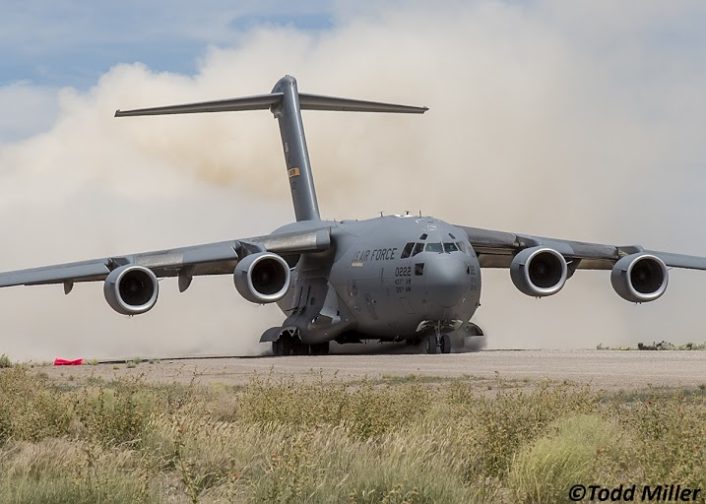
In addition to the transports, the joint Blue force utilized 33 aircraft of 9 platforms (F-16CM, F-15C, F-15E, EA-18G, B-52, A-10, E-3, RC-135J, E8, MQ-9). Advanced command and control capabilities were complemented by Joint Terminal Attack Controllers (JTAC) on the ground in the vicinity of the airfield.
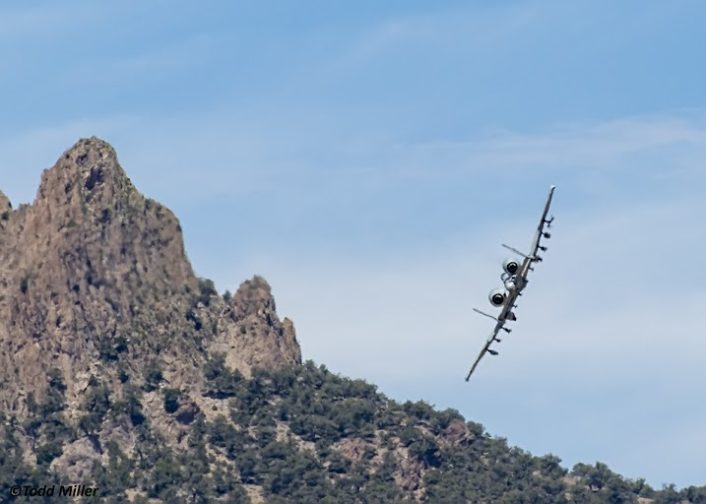
The Red Force included 10 aircraft (8 F-16s and 2 A-4s) complemented by a ground force that included U.S. Army High Mobility Artillery Rocket Systems (HIMARS). The adversary ground threat combine and coordinate with Red air flying F-16s out of Nellis AFB. Together, they form a dynamic and unpredictable adversary that must be forcibly neutralized.
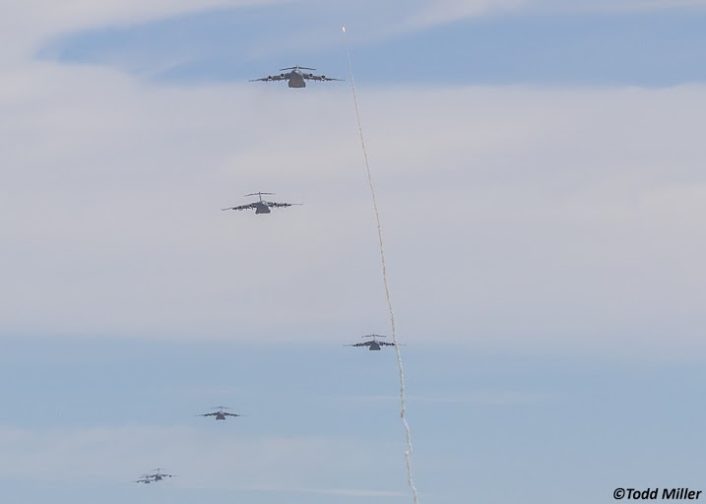
Col. Michael Drowley, Commandant of the USAFWS, notes that “…weapons school graduates are challenged to solve very difficult problems, given the smaller force size, integration is the key to success.” JFEX demands the advanced platform and service integration that is anticipated in future warfare.
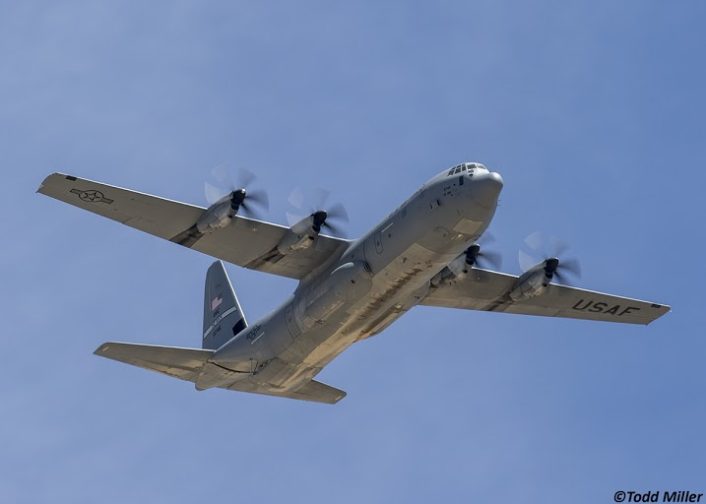
With primary air and ground threats neutralized, the massive force of C-17As and C-130H and Js appeared over the field on cue. Some of the transport aircraft had flown direct to the central Nevada location from distances as far as Fort Bragg, NC. Throughout the operation, A-10s remained low and close to the airfield neutralizing any dynamic threats. F-16CMs, F-15Cs and B-52s circled high overhead responding to ongoing SAM and air threats. The exercise involved nearly 600 participants and went smoothly, though high surface winds led to an abort of the paratrooper jump.
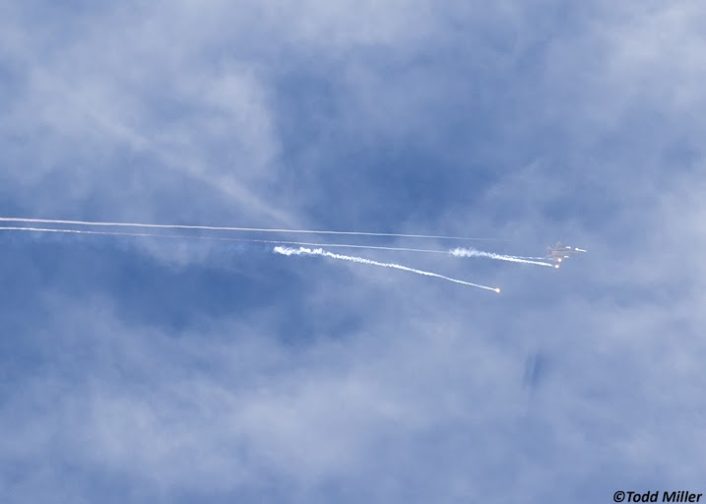
Effective training challenges are those that are more difficult than real world scenarios. Judging by this JFEX, the 2016-A class of Weapons Officers are ready for any challenge an adversary brings.

Heartfelt thanks for the support provided by the USAF ACC 99 ABW PAO, specifically SrA Joshua Kleinholz, and Susan Garcia, U.S. Weapons School. Photo contributions by photographer Eric Bowen, JFEX Dec 2015.
Top image: Erik Bowen
Related articles

